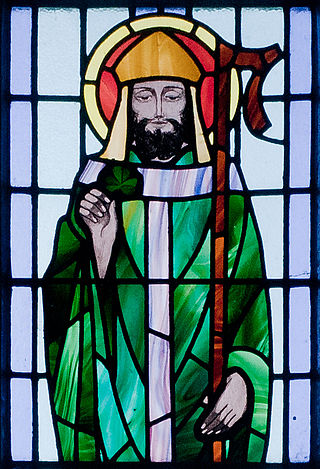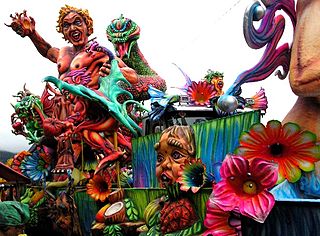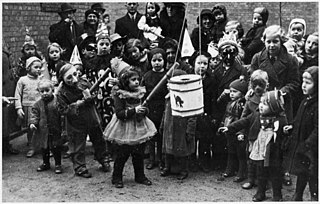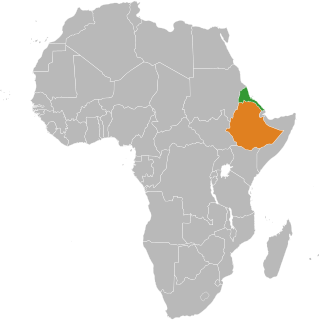
Carnival or Shrovetide is a festive season that occurs at the close of the Christian pre-Lenten period, consisting of Quinquagesima or Shrove Sunday, Shrove Monday, and Shrove Tuesday or Mardi Gras.

Saint Patrick's Day, or the Feast of Saint Patrick, is a religious and cultural holiday held on 17 March, the traditional death date of Saint Patrick, the foremost patron saint of Ireland.

Blacks and Whites' Carnival, is a Carnival public festival and parade in southern Colombia established in 1546. Although its geographical location belongs to the city of Pasto, it has been adopted by other municipalities in Nariño and southwestern Colombia. It is celebrated every year in 2–7 January and attracts a considerable number of Colombian and foreign tourists.

The carnival in Colombia was introduced by the Spaniards. The Colombian carnival has incorporated elements from European culture, and has managed to syncretise, or re-interpret, traditions that belonged to the African and Amerindian cultures of Colombia. There is documentary evidence that the carnival existed in Colombia in the 17th century and had already caused concern to the colonial authorities, who censored the celebrations, especially in the main centers of power such as Cartagena, Bogotá and Popayán. The carnival, therefore, continued its evolution and re-interpretation in the small and at that time unimportant towns where celebrations did not offend the ruling elites. The result was the uninterrupted celebration of carnival festivals in Barranquilla, and other villages along the lower Magdalena River in northern Colombia, and in Pasto, Nariño in the south of the country. In modern times, there have been attempts to introduce the carnival in the capital, Bogotá, in the early 20th century, but it has always failed to gain the approval of authorities. The Bogotá Carnival has had to wait until the 21st century to be resurrected, this time, by the authorities of the city. Colombia is recognized by its large variety of festivals, carnivals and fairs. Most towns have their own, ranging from those celebrating coffee to the ones held in honor of the town's Saint feast. The common characteristics of the festivals are the nomination of a beauty Queen and the setting up of public dance floor.

Maslenitsa, also known as Butter Lady, Butter Week, Crepe week, or Cheesefare Week, is an Eastern Slavic religious and folk holiday which has retained a number of elements of Slavic mythology in its ritual. It is celebrated during the last week before Great Lent; that is, the eighth week before Eastern Orthodox Pascha.
Kolkata has many festivals throughout the year. The largest and most magnificently celebrated festival of the city is Durga Puja, and it features colourful pandals, decorative idols of the Hindu goddess Durga and her family, lighting decorations and fireworks. Other major festivals are Diwali, Kali Puja, Holi, Saraswati Puja, Poush Parbon, Poila Boishakh, Christmas, Eid al-Fitr, and Eid al-Adha.
The culture of St. Kitts and Nevis, two small Caribbean islands forming one country, has grown mainly out of the West African traditions of the slave population brought in during the colonial period. France and British colonists both settled the islands, and for a period of time the British imported indentured Irish servants. The native Caribs, skilled warriors, defended their lands by attacking the colonies. But by 1782, the British had gained control of St. Kitts and Nevis, which they retained until granting the islands their independence in 1983. British influence remains in the country's official language, English, while some islanders speak an English-based Creole. The influence of the French, Irish, and Carib seems less pronounced.

Fastelavn is a Carnival tradition in the Northern European, and historically Lutheran, nations of Denmark, Norway, Sweden, Latvia, Estonia, Iceland, Faroe Islands, as well as Greenland.
Lists of holidays by various categorizations.

A variety of customs and traditions are associated with Carnival celebrations in the German-speaking countries of Germany, Switzerland and Austria. They can vary considerably from country to country, but also from one small region to another. This is reflected in the various names given to these festivities occurring before Lent.
Carnival in Italy is a farewell party to eat, drink, and have fun before the limitations and solemnity of Lent. About a month before Ash Wednesday, Italians celebrate over many weekends with parades, masks, and confetti. The origins of this event may be traced to ancient Greece and Rome, when they worshipped Bacchus and Saturn. Some think they date back to archaic winter-to-spring ceremonies. Despite its pagan origins, the event was so extensively celebrated and the tradition so powerful that it was swiftly altered to fit into Catholic rituals. Carnival in Italy is traditionally celebrated on Fat Tuesday, but the weekend prior features activities as well. The most famous Carnivals in Italy are those held in Venice, Viareggio, Ivrea, Cento, Apulia and Acireale. These Carnivals include masquerades and parades.

Independence Day of Ukraine is a state holiday in modern Ukraine, celebrated on 24 August in commemoration of the Declaration of Independence of 1991.

The Carnival in the Dominican Republic is celebrated in most cities and towns in the main streets of the country. Among its most notable characteristics are its flashy elaborate costumes and traditional masks. The carnival held in the city of La Vega, which is one of the biggest in the country, and the national parade in Santo Domingo, were the first Carnivals held in the Americas in the early 1500s.

Haitian Carnival is a celebration held over several weeks each year leading up to Mardi Gras. Haitian Defile Kanaval is the Haitian Creole name of the main annual Mardi Gras carnival held in Port-au-Prince, Haiti.
Carnival in Mexico is celebrated by about 225 communities in various ways, with the largest and best known modern celebrations occurring in Mazatlán and the city of Veracruz.

Independence Day, observed annually on 27 June, is a national holiday in Djibouti. It marks the territory's declaration of independence from France. An independence referendum was held in the French Territory of the Afars and the Issas on 8 May 1977 alongside elections for a Constituent Assembly. Unlike previous plebiscites in 1958 and 1967, this time the territory became independent as Djibouti on 27 June 1977. Djibouti Independence Day is a national holiday, with workers given a day off. Independence Day is associated with military parades, fireworks, concerts, fairs, and political speeches and ceremonies, in addition to various other public and private events celebrating the history and culture of Djibouti.
Carnival is the most important and well-known festivity celebrated in Tarazona de la Mancha, in the Spanish province of Albacete.

Relations between Eritrea and Ethiopia have been historically adversarial. Eritrea gained independence from Ethiopia in 1993 after the Eritrean War of Independence, after which relations were cordial. Since independence Eritrea's relationship with Ethiopia was entirely political, especially in the resuscitation and expansion of IGAD's scope. However, the 1998 Eritrean–Ethiopian War marked a turning point, and their relationship became increasingly hostile.

The Independence Day of Indonesia is a national holiday in Indonesia commemorating the anniversary of Indonesia's proclamation of independence on 17 August 1945. It was made a national holiday by government decree in 1946.













